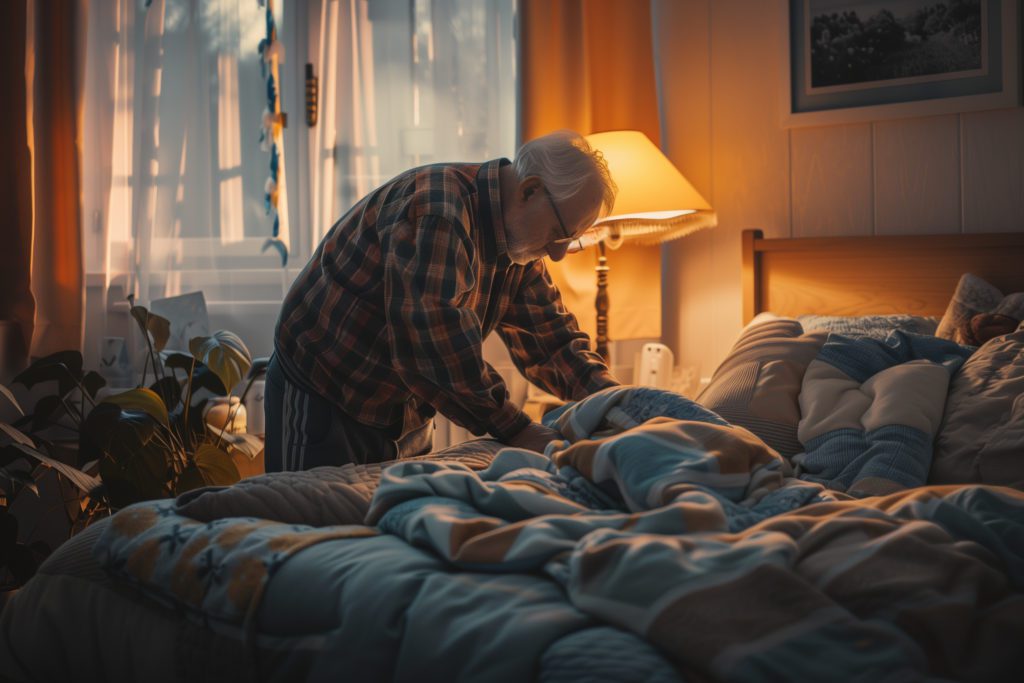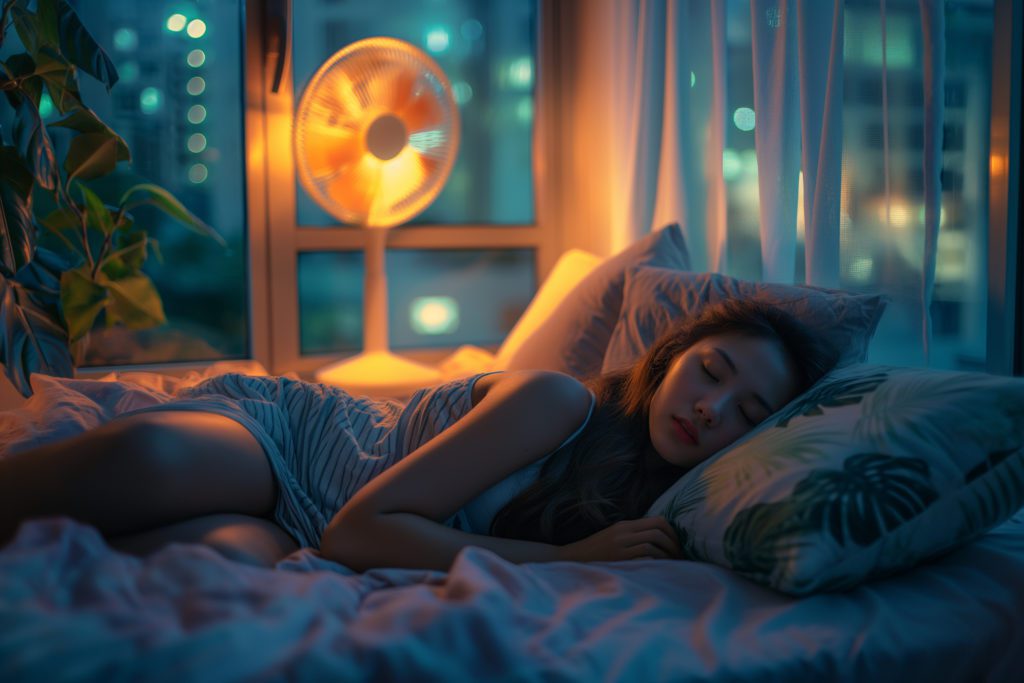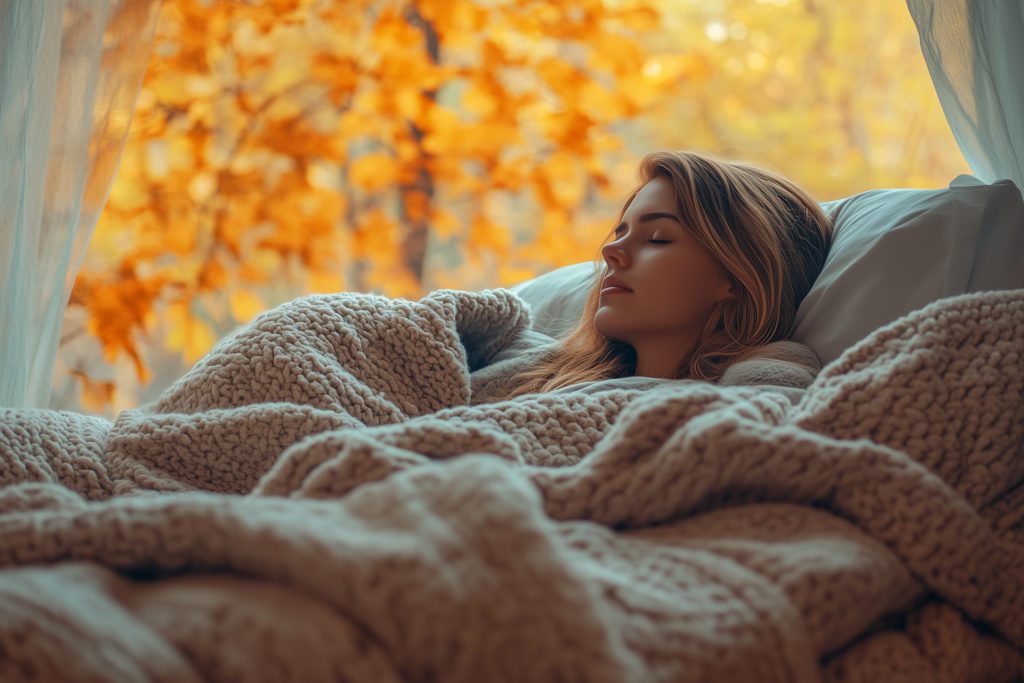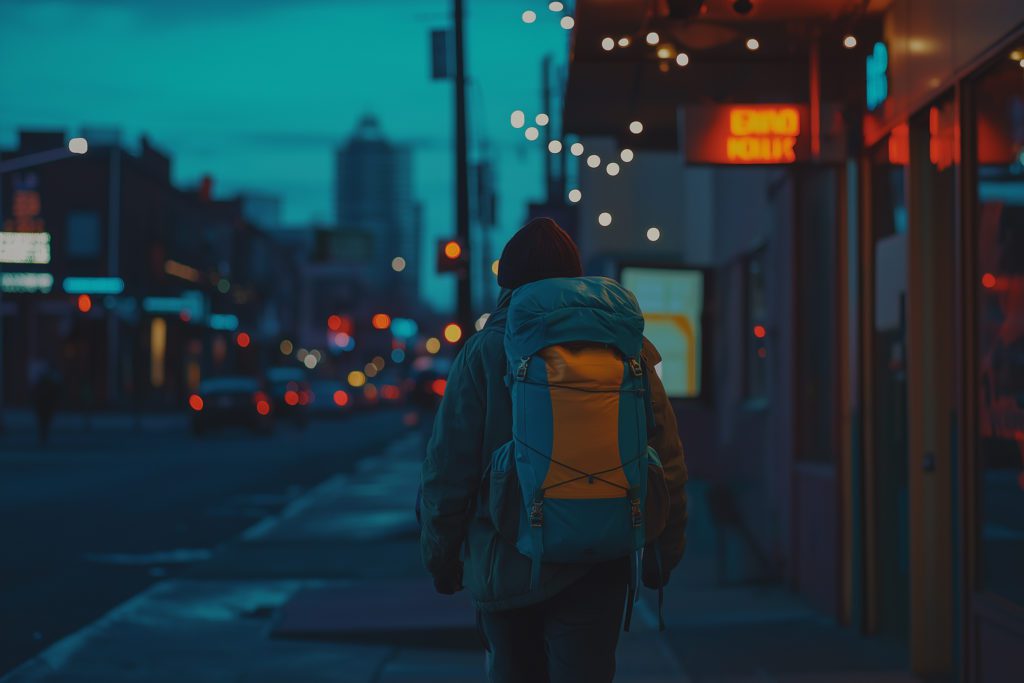
Sleeping Well During Summer: The Importance of Dark, Cool, and Quiet
The summer heat and longer days can make sleeping harder. Explore tips for preserving your sleep hygiene in the hot summer months.

If the sun were to play favorites with the seasons, summer would likely be at the top of its list. Why else would it decide to stick around so long during the summer months and shine so brightly? However, while summer is the sun’s time to shine, this may not necessarily equate to good sleep.
The summer months are hotter, with longer days and greater activities planned, all of which can lead to poorer quality sleep. However, there are steps you can take to address these summer hurdles and maintain a good night’s sleep so that you’re ready when the sun pops back out again.
Summer Sleep Struggles
Three summer habits make sleep harder to come by: it’s hotter, days are longer, and people are more active. Let’s explore how these habits can influence your sleep.
Warmer Temperatures
Starting with the most obvious, the summer months bring along a significant increase in temperature, not only during the day but at night as well. Unfortunately, there are two ways that temperature affects sleep: it can make it hard to fall asleep, and it can wake you up prematurely.
First, it’s helpful to know the role of temperature in our sleep cycle.
When you reach the early evening, your body temperature begins to decrease as a part of your circadian rhythm, which is the 24-hour internal clock that regulates important functions such as sleep, mood, and appetite. During the day, your body produces cortisol, which not only makes you alert but also keeps your body temperature at its normal temperature. However, when the sun goes down and your body starts producing melatonin, your core temperature dips.
With a lower internal temperature, your external temperature also needs to decline so that you can continue to remain comfortable. However, in the summer, your room’s temperature may be hotter than it normally is at night, which can make you uncomfortable and unable to sleep.
Furthermore, temperature can interfere with the natural thermoregulation that occurs while you’re sleeping. Namely, when your room is too warm, your body temperature rises, and your body may think that it’s time to wake up. It’s during the first two stages of the sleep cycle, in particular, that you’re more likely to wake up if you’re hot.
So, not only can the warm temperatures that are more common in summer make it hard to fall asleep, but it may also wake you up throughout the night, cutting back the amount of deep sleep you get.
Longer Days
Daylight hours peak during the summer months, and while the longer summer days offer more time to explore the outdoors, they can also interfere with your sleep.
Our circadian rhythm relies on light as its main regulator; when the sun goes down, our bodies start producing melatonin, and when the sun comes up, melatonin production declines. Thus, the longer daylight hours in the summer can push back when your body starts producing melatonin. The result of this is that, by the time you go to bed, you might not have enough melatonin to feel sleepy, which can make it hard to then fall asleep.
Greater Activity
When the weather is nicer and the days are longer, you may find yourself with a full schedule. Not only can this keep you from going to bed at your normal bedtime, but if you live with other people and they stay up late, they may keep you up if they are noisy.
Summer Sleep Tips
In the summer, there are three things that we want to prioritize: cool, dark, and quiet. These are some suggestions for how you can achieve this:
- Drop the thermostat. If your bedroom is too hot, you may have a hard time falling and staying asleep, so drop the thermostat to the 60s to cool your room. This is especially important in the summer when your room has to compete with the warm air outside.
- Use a fan. A fan offers two benefits; first, it can help cool your room down so that you’re not as hot when you sleep. Two, a fan can serve as a source of white noise, which can help drown out noises made by anyone else living in your house or outside noise.
- Take a hot bath. It may seem counterintuitive, but stick with us. Hot baths can help to cool down your internal body temperature because after leaving the hot water, your body temperature lowers as it adapts to the cooler environment. For the greatest benefit to your sleep, take a hot bath prior to, but not immediately before, going to bed.
- Draw the curtains. Drawing the curtains is another key summer sleep tip. First, it helps to darken your room, especially if you opt for blackout curtains, which can help you go to bed if the sun is still in the sky or allow you to sleep in past the early summer sunrises. Additionally, when you draw your curtains in the afternoon or early evening, it keeps the sun out of your room, which helps keep it from becoming too hot. Blocking the morning sun can also prevent a sweaty morning wake-up.
- Avoid evening exercise. While exercise during the day can help your sleep, it can have the opposite effect if completed too close to bedtime by raising your body temperature.
- Try colored noises. While fans are a natural source of white noise, other forms of colored noises, such as pink or brown noise, which can be found in the Pillow app, can also promote relaxation while blocking outside noises.
- Dim the lights. When you near bedtime, make sure to lower the lights to signal to your body that it’s almost time to sleep. If the sun is still up when you get ready for bed, close the blinds and instead use low lighting to better prepare your body for sleep.
- Opt for light clothing. When the weather is warm, you need to do all you can to stay cool, and that includes modifying what you sleep in. In the summer months, opt for light and airy pajamas that don’t cling to your skin. To really cool down, you may even find that sleeping naked or sleeping only in your underwear is a better choice.
When it comes to getting good quality sleep in the summer—or really, any time of the year—just remember that you want it to be cool, dark, and quiet. The summer months may be harder to stick to these goals, but when you make small changes, you’ll sleep much better and have all the energy you need to enjoy those long summer days.
FAQ
Are there specific fabrics recommended for sleepwear and bedding in summer?
Yes, breathable and moisture-wicking fabrics like cotton, linen, and bamboo help regulate body temperature by promoting airflow. Avoid synthetic materials like polyester, which trap heat and moisture. Lightweight blankets and cooling pillows can further enhance comfort on hot nights.
What role does humidity play in summer sleep disturbances?
High humidity makes it harder for sweat to evaporate, preventing the body from cooling down. This can lead to restless sleep and night sweating. A dehumidifier, fans, or moisture-wicking sheets can help regulate humidity levels, keeping your sleep environment comfortable and breathable.
Is it advisable to use air conditioning throughout the night?
Yes, but set it to a moderate temperature to avoid excessive cold, which can disrupt sleep. Regularly clean air filters to ensure good air quality and prevent allergies. If A/C feels too drying, use a humidifier or keep a glass of water nearby to prevent throat irritation.
What are some natural ways to cool down before bed?
A lukewarm shower before bed helps lower body temperature. Sleeping with a cooling pillow or a damp washcloth on pulse points can also help. Keeping curtains closed during the day reduces heat buildup in the bedroom. Hydrating and wearing loose, breathable sleepwear aids cooling as well.
What are the best sleeping positions to stay cool in summer?
Sleeping on your back allows heat to dissipate more easily, preventing excessive sweating. Avoid curling into a fetal position, as it traps body heat. If you’re a side sleeper, keep limbs slightly apart for better airflow.
How does sleeping in a different location, like the floor or a hammock, help in hot weather?
Sleeping lower to the ground, like on a thin mattress or the floor, can feel cooler since heat rises. Hammocks promote airflow around your body, preventing heat buildup. If your bed traps heat, trying alternative sleeping arrangements could improve comfort during hot summer nights.

Written by
Jessica G
Medical writer freelancer who has written hundreds of articles on varying topics. Masters of Engineering degree in Biomedical Engineering.
Download Pillow
Get help
Press & News
Legal
Connect
X (Twitter)
Company
Copyright © Neybox Digital Ltd.



